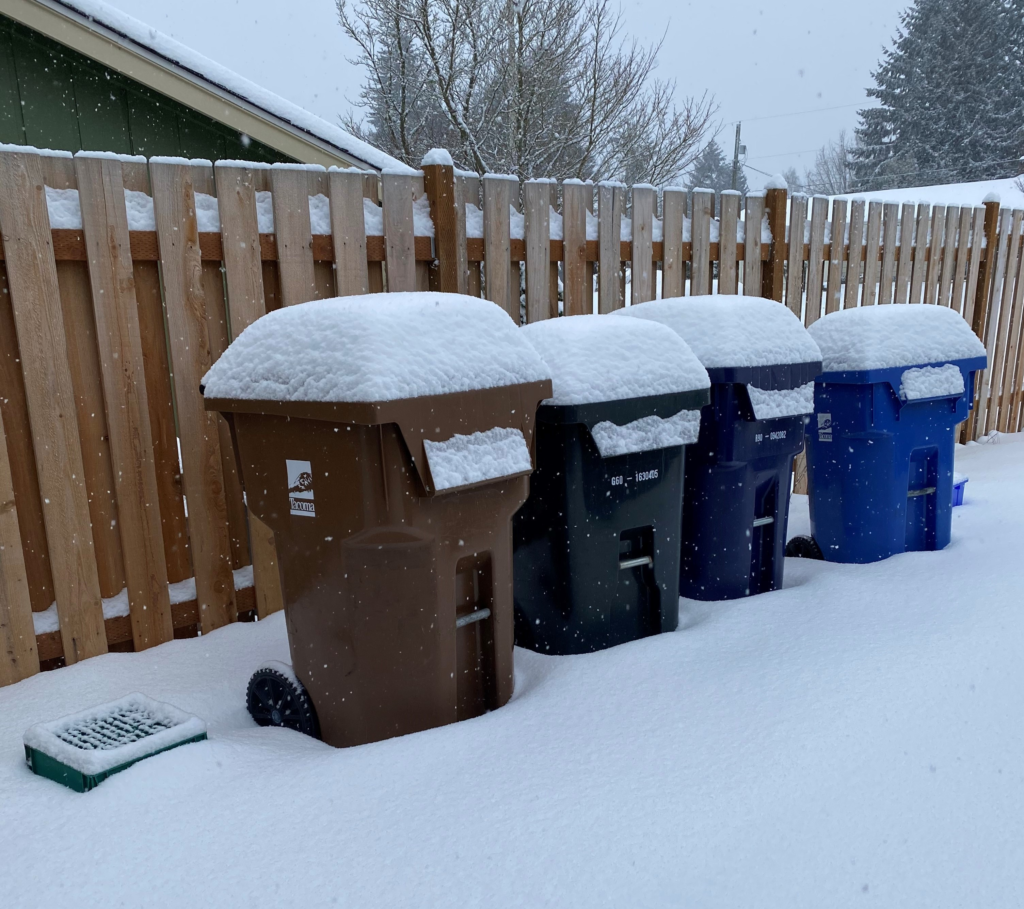Holiday season is upon us in all its wonder, family tidings, and larger-than-normal consumption habits. It has been estimated that household waste increases over 25% during the holidays. Looking to maximize the joy and minimize your impact? Here are some tips to try out to have a more sustainable and eco-friendlier holiday season.
- Get full use out of your foods. Use leftovers for new and creative dishes. Share extras with neighbors and loved ones, or consider donating excessive leftovers to a local shelter or food bank.
- Give your scraps a second chance. Use your turkey carcass and all those vegetable scraps including potato peels, celery ends, carrot tops and more for homemade stock! Simply throw it all into a big pot, cover with water, simmer for a few hours, then strain. Store food scraps (and finished stock) in the freezer until ready for use.
- Find a local compost site. Just because you do not compost at home or have food waste pick up in your neighborhood doesn’t mean you can’t compost. ShareWaste can connect you to composters in your area so you can set up food scrap drop off.
- Buy organic and local. Use organic and local foods for your holiday dinners. At least try to use foods that are in season.
- Try out different wrapping materials. Most wrapping paper is not recyclable, because of the shiny coating. Make your own by using newspapers, old maps, paper bags! Or even an attractive towel that can have a purpose after serving as wrapping paper.
- DIY gifts. Consider DIY gifts such as soaps, homemade ornaments, or even a crafted picture frame.
- Gift an experience. Consider giving an experience rather than something tangible. This can minimize wrapping and support your local community with tickets to a sporting event, a museum, lessons or even a donation in their name.
- LED lights. Use energy-saving LED light strings, these will save energy and money!
- Avoid fake trees. If you decorate your home with a tree, use one that is pesticide- free that is locally grown. Though fake trees sound like a better route because you are avoiding cutting down a tree. But think of the emissions and materials needed to make that tree, the distance it will have to travel (probably more than you would to a local tree farm), and it will most likely end up in a landfill. Maybe even look into renting one! Some farms will let you rent a tree instead, this allows the tree to continue to grow and eliminates the process of what to do with it after.
- Keep your tree out of the landfill. Many cities have programs for pick-up or drop-off of your tree and they will turn into mulch or wood chips. Or check out your neighborhood Facebook community, somebody is probably willing to pick up your tree for free, so they have firewood. Be sure to remove tinsel, tape, rope, any other materials from your tree before disposing of it.

